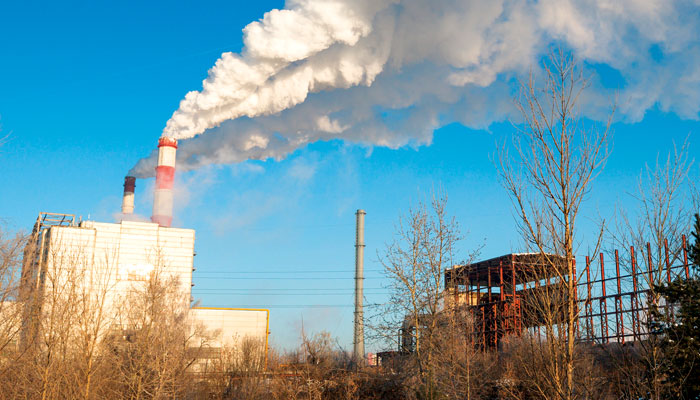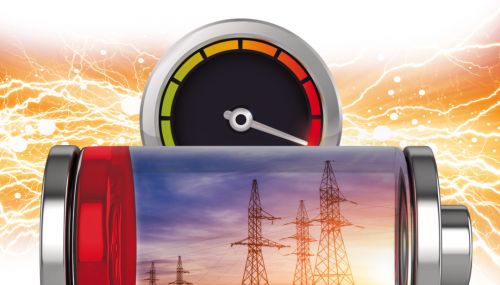MEMA intervenes in DPU review
Oilheat dealers in Massachusetts have their hands full trying to ward off a state carbon tax that could increase the price of carbon-based fuels, particularly heating oil.
The Massachusetts Energy Marketers (MEMA) recently joined forces with two other trade associations to intervene in a carbon tax petition currently before the Massachusetts Department of Public Utilities (DPU). Associated Industries of Massachusetts (AIM) and the Massachusetts Petroleum Council (MPC) joined MEMA in seeking to intervene in the carbon tax petition, which was filed by the Massachusetts Department of Environmental Protection (DEP) and the Massachusetts Department of Energy Resources (DOER). The agencies propose taxing CO2, which could add $50 to the cost of a 300-gallon heating oil delivery, according to MEMA President Michael Ferrante.
The DPU petition is one of three carbon tax initiatives in Massachusetts. In 2013, 13 state representatives filed legislation to enact a carbon tax. There was no action on their bill, but Ferrante said he expect the bill to be reintroduced in 2015.
The other initiative also came from the DOER in the form of a study of a carbon tax. The agency awarded a contract to Regional Economical Models Inc. (REMI) in May 2015, and the study is now under way. REMI has already produced a Massachusetts carbon tax study in 2013 on behalf of the Committee for a Green Economy. MEMA has been named a stakeholder in the new study.
Heating Oil Is the Target
Ferrante told Oil & Energy that the Deval Patrick administration is determined to see heating oil usage curtailed. “Heating oil is the number one target.” He said. “The utilities and ISO-New England are in there, but heating oil on the commercial and industrial sides is the bulls-eye they want to hit,” the MEMA President said.
Patrick, a Democrat, is leaving office at the end of 2014 and will be replaced by Charlie Baker, a Republican, who defeated Democrat Martha Coakley in the Nov. 4 election.
A carbon tax, even if levied on all carbon-based fuels, could be particularly punitive to heating oil because of the fuel’s carbon intensity. Data from the U.S. Energy Information Administration shows that diesel fuel and heating oil generate 161.3 pounds of carbon dioxide per million BTU of energy. Comparable figures for other fuels are: gasoline, 157.2 pounds; propane, 139.0 pounds; and natural gas, 117.0 pounds. Massachusetts DEP Commissioner David Cash has explained the administration’s push for a carbon tax by saying the state needs to place a price on carbon emissions in order to create a negative incentive for usage of carbon-based fuels.
In their petition to the DPU, DOER and DEP have asked the Department to establish a standard for “avoided costs of complying with the Global Warming Solutions Act (GSWA),” which is a Massachusetts law that requires the state to reduce greenhouse gas emissions. The agencies propose that the cost to be avoided be an assessment of $54 per ton of carbon dioxide emissions.
Ferrante said the agencies are asking DPU to use its authority to enforce its own Energy Efficiency Guidelines to designate a carbon tax as an avoidable environmental cost, so that the DPU will favor non-carbon fuels in its evaluation of future energy efficiency measures.
MEMA, AIM and MPC were granted the right to intervene in the DPU proceeding, and AIM will serve as lead advocate for the three organizations, Ferrante said. There are indications that the DPU could complete the proceeding by the end of 2014, and Ferrante is concerned that the DPU might try to enact the tax to give Patrick a major victory before he leaves office at year’s end.
Methane, Biomass Get a Pass
No U.S. state has enacted a carbon tax, although some states participate in carbon cap initiatives like the Regional Greenhouse Gas Initiative (RGGI), which auctions CO2 allowances to power sector polluters in Connecticut, Delaware, Maine, Maryland, Massachusetts, New Hampshire, New York, Rhode Island and Vermont. Carbon taxes have been enacted in Germany and the Canadian Province of British Columbia.
It is unclear what sort of taxing mechanisms any of the Massachusetts initiatives would create, according to Ferrante. Taxing carbon usage at the consumer level would be complicated, and the MEMA President believes regulators might try instead to tax heating oil at the rack.
Biomass fuel creates carbon dioxide when burned just like petroleum does, but regulators in Massachusetts are proposing to exempt biomass from carbon taxing by defining a carbon-based fuel as being more than 1,000 years old.
Methane, too, is unaccounted for in the Massachusetts carbon tax proposal, according to Ferrante, even though methane is a more powerful greenhouse gas than CO2 and natural gas usage is directly tied to methane emissions. “Methane came up at the stakeholder meeting, and [the agencies] had to admit they could not avoid looking into it,” he added.





